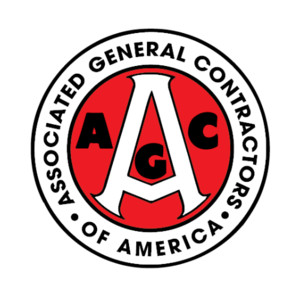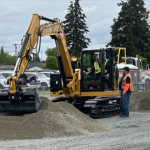Building resilience: How construction workers can avoid burnout
Construction work is physically demanding and mentally challenging, making it susceptible to burnout. In the construction industry, it’s crucial to ensure that your people remain energized and motivated throughout projects. In this blog, we’ll explore strategies to help construction workers avoid burnout while on the job.
and motivated throughout projects. In this blog, we’ll explore strategies to help construction workers avoid burnout while on the job.
Prioritize time management
Effective time management is the foundation of preventing burnout. Encourage your team to create daily schedules that allocate time for tasks, breaks, and rest. Ensure workloads are distributed evenly to prevent overburdening any one individual. By organizing tasks and setting realistic timelines, construction workers can maintain a healthier work-life balance.
Promote open communication
Create an environment where team members feel comfortable expressing their concerns and sharing their experiences. Encourage open communication channels for discussing challenges, workloads, and any signs of burnout. A culture of openness enables early intervention and support when necessary.
Provide adequate rest periods
Construction work can be physically grueling, and exhaustion can lead to burnout. Emphasize the importance of taking regular breaks to rest and recharge. Short, frequent breaks throughout the day can help alleviate physical and mental fatigue. Additionally, ensure workers receive their legally mandated rest periods and days off to prevent chronic exhaustion.
Implement job rotation
Monotonous tasks can contribute to burnout. Implement job rotation strategies that allow workers to switch between different responsibilities or projects periodically. This not only adds variety to the workday but also reduces the risk of repetitive stress injuries and mental fatigue.
Offer training and skill development
Providing opportunities for skill development and career advancement can boost morale and motivation. Workers who see a clear path for growth are more likely to remain engaged and committed to their jobs. Offer training programs, certifications, and opportunities for advancement within your construction company.
Create a positive work environment
A positive work environment can significantly impact job satisfaction and prevent burnout. Foster a culture of appreciation and recognition by acknowledging your team’s hard work and achievements. Encourage camaraderie and teamwork among workers to enhance their sense of belonging.
Establish realistic expectations
Avoid setting unrealistic expectations for project completion or worker performance. Unrealistic demands can lead to stress and burnout. Instead, work with your team to establish achievable goals and timelines. When workers have a clear understanding of what is expected of them, they are less likely to feel overwhelmed.
Encourage self-care
Promote self-care practices both on and off the job site. Encourage your team to prioritize physical health by staying hydrated, maintaining a balanced diet, and engaging in regular exercise. Additionally, emphasize the importance of mental self-care, such as mindfulness techniques, relaxation exercises, and stress management strategies.
Provide support and resources
Make sure your team is aware of the support and resources available to them. This may include access to employee assistance programs (EAPs), counseling services, or wellness initiatives. Let your workers know that seeking help is a sign of strength, not weakness.
Lead by example
As a leader in the construction industry, you set the tone for your team. Lead by example by demonstrating a commitment to work-life balance, self-care, and open communication. When your team sees you prioritize these aspects, they are more likely to follow suit.
Construction work is demanding, but burnout is not an inevitability. By implementing these strategies and fostering a supportive work environment, you can help your construction workers avoid burnout and sustain their enthusiasm and productivity throughout projects. Remember, a well-balanced and motivated team is essential for the success of any construction endeavor.








